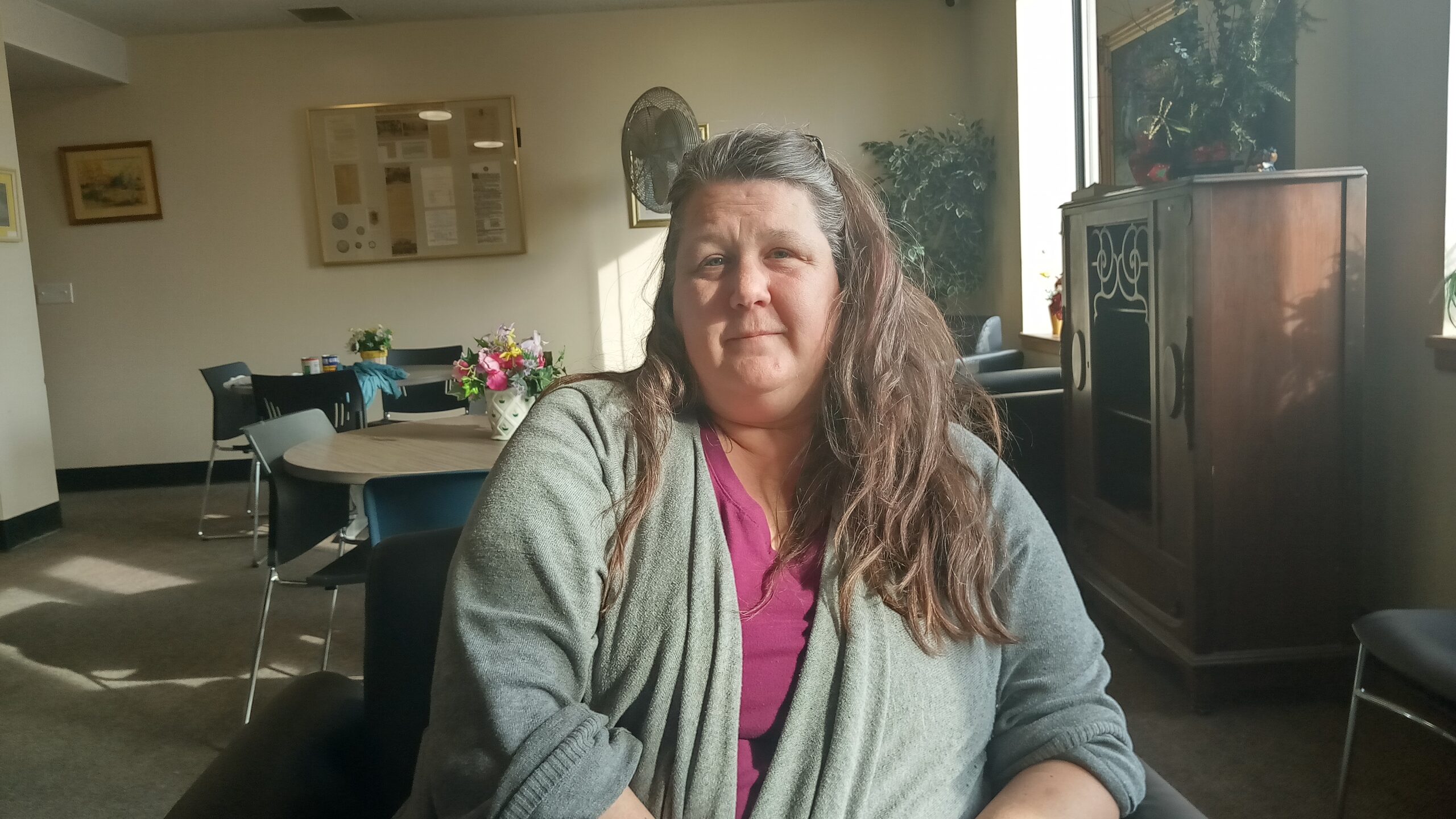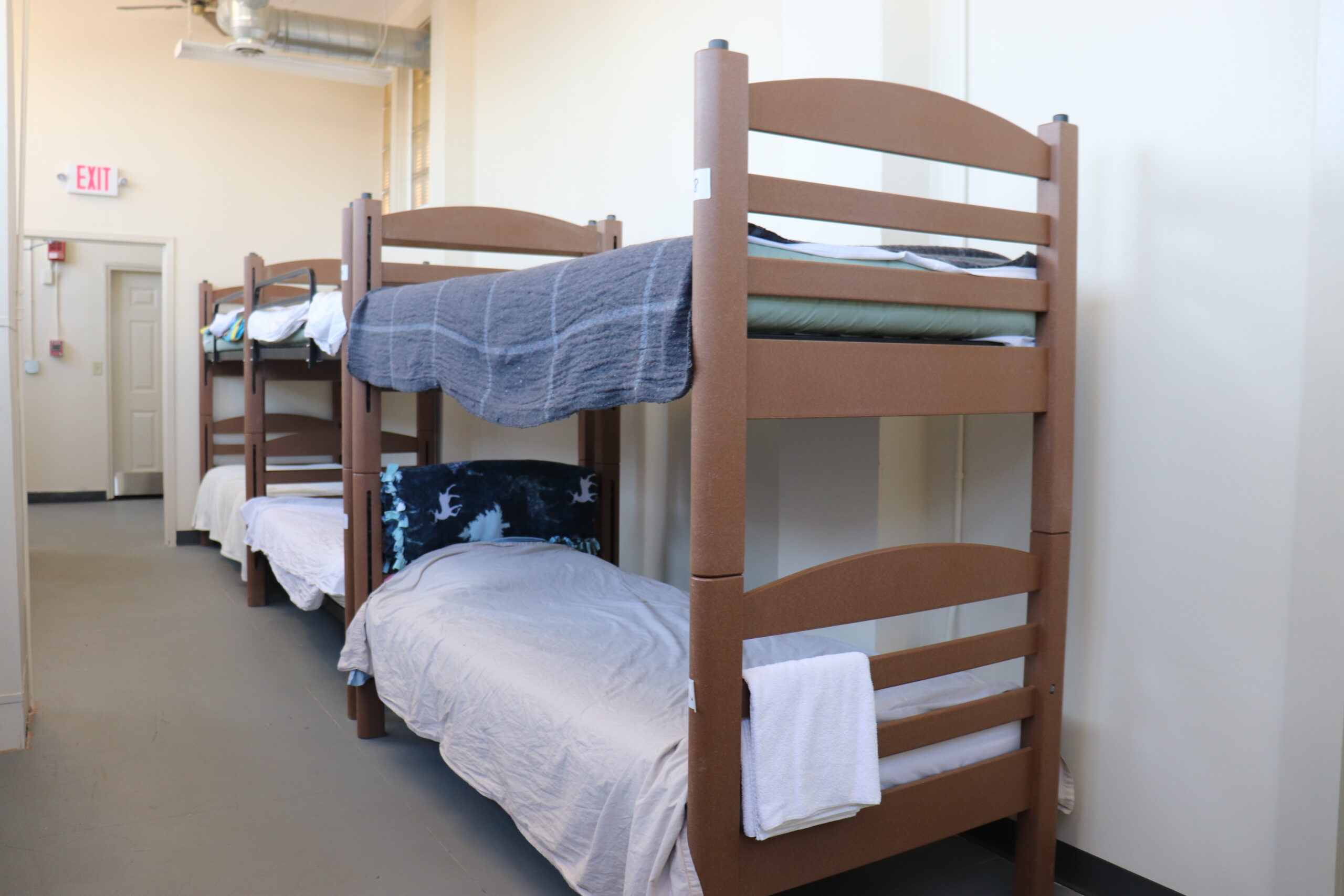
MANCHESTER, NH – I first became involved with Louisa Gagnon at a tenant’s advocacy clinic doing casework in the summer of 2022, helping people prepare for their eviction hearings at the courthouse on Amherst Street. At the time, Louisa was living in a rooming house on the West Side funded by Southern New Hampshire Services. The landlord had filed multiple eviction cases against her in what appeared to be retaliation for wrongs real or imagined.
When I arrived at the building, I found a shared kitchen with broken stoves and ovens, and small shared bathrooms reminiscent of a college dormitory. The odor of marijuana wafted through the air; Louisa, who has an ongoing respiratory problem, complained about getting high and sick from the fumes. While police were sometimes seen in the neighborhood, nothing much was done to change the smell in the building.
“They kicked me out because I reported somebody for doing crystal meth in the building,” Gagnon said. “I was exposed to it, and I got high from the fumes. I fell on her (landlord’s) property, and she kicked me out. I now have cyatic nerve damage, and I can’t make it to the bathroom sometimes. I have a lot of problems with my left leg.”
Gagnon lost her court hearing, and was ordered off the property. Her hearing featured an allegation of Gagnon pepper-spraying a neighbor after a dispute, and an allegation of harassment against the building’s maintenance professional who attempted to enter the women’s bathroom when Gagnon was showering. Being at the courthouse proved incredibly stressful for her; it didn’t help that her case went on last, a few hours after the courtroom opened. After the case was over, she broke down in tears.
Soon thereafter, she went from the New Horizons shelter on Manchester Street to a hotel in Concord for three months and back to Manchester. She received a 366-day ban from the shelter – a long period that is highly unusual – leaving her without a permanent place to stay. She can go to 1269 overnight, but the only sleeping accommodations there are resting one’s head on a table, which leaves her feeling sore and stiff when she wakes, if she sleeps at all.
“They were very nice to me at the 1269,” Gagnon said. “But I can’t sleep in a chair, or those small booths. I tried it; I couldn’t do it.”

Following her eviction from New Horizons, she turned to me at 4 PM in the afternoon with nowhere to go. She walked about town on a bad leg, the result of a lingering injury from when she fell on the ice. I drove her to Cashin Center on the West Side, which was operating as an overnight warming station. This station was then moved to 39 Beech Street, where she stayed for two weeks before getting evicted again. In the interim period, she purchased a van, which she has lived out of when she had nowhere else to go.
An attempt by this reporter to get comment from Jake King, the shelter manager of the Beech Street location, was unsuccessful.
Gagnon said at Beech Street, the shelter was over-capacity. When the YWCA Brook Street shelter opened, she went there, where she currently resides. Her only options appear to be a HUD section 8 voucher or entering disabled/elderly housing through the Manchester Housing Association, both of which have long wait lists.
Gagnon has an asthma problem, a heart problem, and a behavioral disorder. At times, she can be argumentative and this does not work in her favor in congregate housing situations.
External factors stress her out easily. Her ideal living situation would be living alone in her own house or apartment where she can be assured of having solitude and a place to retreat when stressors mount. With an eviction on her record, landlords are hesitant to rent to her, at times leaving her homeless and stranded in her car.

Being homeless, however, has meant the opposite: Louisa has been constantly surrounded by other people and new situations, some of which may be challenging. In normal times, she’s quiet, amiable, sociable, and easy to get along with. Times of unrelenting crisis which come with being homeless leave her in a difficult place, mentally and emotionally.
She called living in a hotel “great” and “easy,” but she left because assistance money ran out. She wanted to see her friends in Manchester again.
Seeing her wind her way through the shelter system in town has exposed some of the strengths and flaws inherent in the way homeless people are treated.
Families in Transition, responsible for operating the New Horizons shelter, used COVID money to acquire two large hotboxes for bedbug removals, as well as lockers for personal items.

For food, they rely heavily on donations from Hannaford and Trader Joe’s, which drastically reduces the food expenditure they would have to get from the state government otherwise. One estimate of all the food they make has it close to $900,000 a year, only a small portion of which is money spent for items such as milk and butter.
The New Horizons shelter does offer a day program in their dining room, which is often crowded- especially during the cold. It can be loud as well when dozens and dozens of people pack themselves in together, trying to stay warm. The shelter offers sleep-in until 11 a.m. only for those who earn the privilege by volunteering. Privacy is difficult to come by, sometimes non-existent.
“Every shift has a supervisor who supports staff in oversight and implementation of procedures and policies related to safety and well-being of the participants, staff, volunteers, and the facility,” said Stephanie Savard, Chief External Relations Officer for Families in Transition. “All participants are informed of the appeals process upon entrance and in the circumstance of suspension. In addition, all case management services continue to be available during the suspension period, with minimal exceptions.”
The Cashin Center operated as a disaster relief shelter. FEMA cots were provided, together with inflatable pillows and snacks of various kinds. Her first night there, Louisa said the firefighters made everyone a meal out of the food available- much of which was snacks and fresh fruit. Louis said she was comfortable there, but didn’t have a plan in place for what would happen when the emergency period ended in April.
Attempts to get comment from Manchester Fire Department for this story were unsuccessful.

The hotel she stayed in appeared to have been her favorite location, despite the expense to taxpayers and the distance from anything with which she was familiar. In a hotel, she had a bedroom to herself, a bathroom to herself, and could acquire food whenever she wanted.
“It was awesome,” Gagnon said. “I was so happy. Free breakfast, free cup of coffee, you get to relax all day.”
If the shelter system is going to improve outcomes for both participants and the public, more people capable of living independently like Louisa should be placed in independent situations.
As it is, a mismatch between what she needs and what is available has caused her to be turned out of nearly every place where she lived – mostly because the fit just wasn’t any good. There are plenty of people like Louisa, who are capable of living on their own, but who find the shelter system not designed for them. She does not need to recover from alcohol or drug use, and continually feels a negative stigma attached to her situation by the perception that she does.
What the future holds for her is far from certain. Her current situation may be no more stable than any other she has experienced. She may be forced to move outside of Manchester, or New Hampshire altogether. Or she may sleep in her car through the majority of the summer. Living off what meager payment disability can offer does not provide her enough to live on, and she is physically incapable of finding a full-time job to support herself.
Even so, she continues to do her best each day as difficulties mount, stress increases, and options dwindle. Even burdened by everything that has happened to her, she can still crack a broad, welcoming smile as though everything will be all right in the end.
“I’m gonna take one day at a time, that’s all I can tell you,” Gagnon said.







